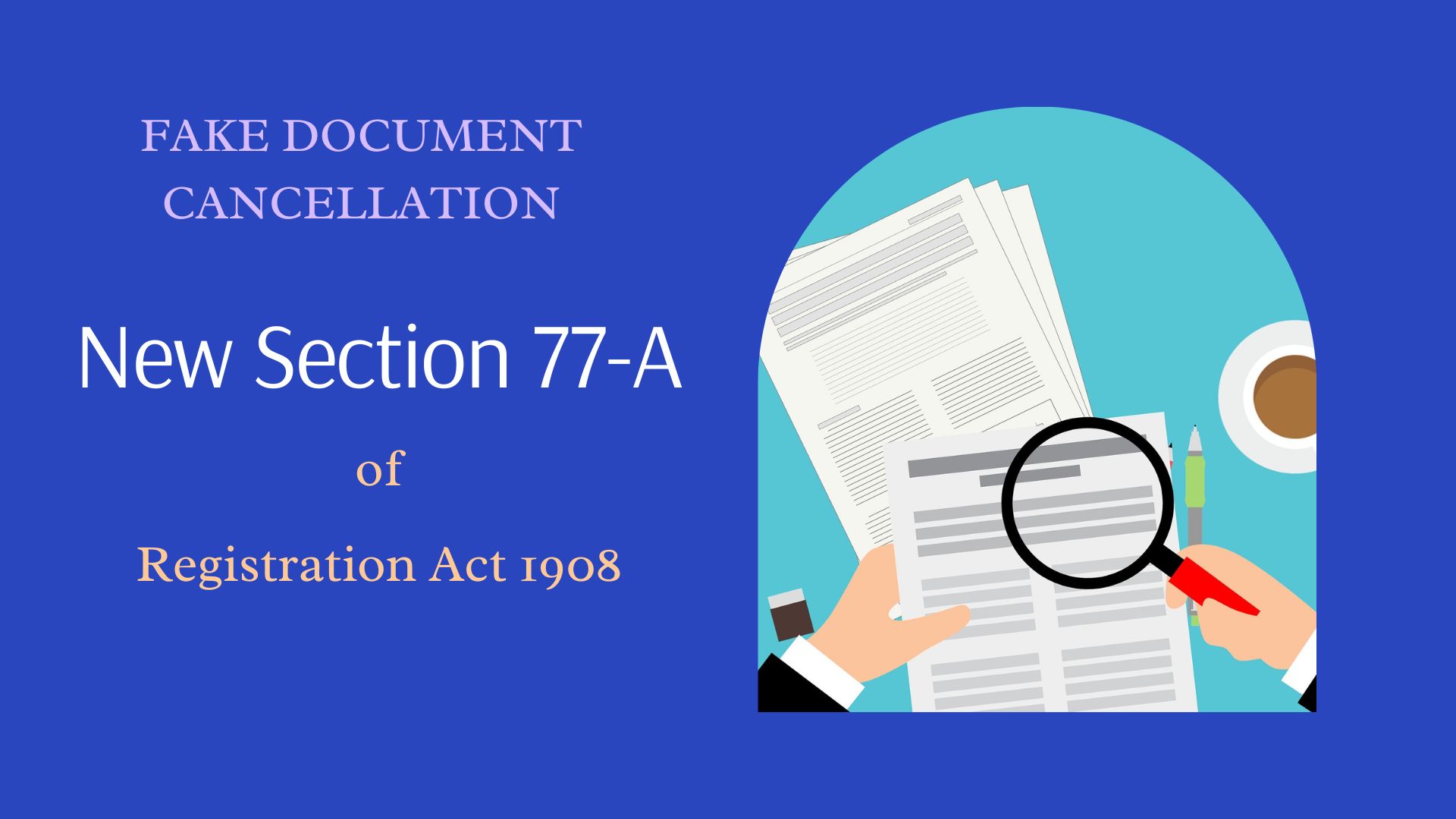Tag: Section-77A
-

Fraudulent Registrations: New Section 77A of the Registration Act Allows District Registrars to Cancel Fake Property Documents | மோசடி பத்திரம் ரத்து செய்யச் சட்டம்
Fake property documents Fake property documents are fabricated or altered papers that misrepresent the ownership and status of a property. Impersonation, forgery, alteration, and fraudulent representations are some of the tactics employed by those doing it.Fake property documents are fabricated or altered papers that misrepresent the ownership and status of a property. Impersonation, forgery, alteration, and fraudulent representations are some of the…